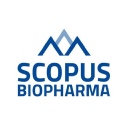Companies
Discover all trending biotech companies
Discover all trending biotech companies

Company Research Platform
Global Employees
1
R&D Investment
12400000
This segment focuses on the research and development of immuno-oncology gene therapy, specifically CO-sTiRNA, a STAT3 inhibitor gene therapy. Research activities include preclinical studies, clinical trials, and manufacturing of the gene therapy product. The technology utilizes gene therapy to target tumor cell growth and anti-tumor immune suppression. The therapeutic area is oncology, with a focus on treating various cancers. The patient impact is significant, aiming to provide new treatment options for patients with cancers that are resistant to current therapies. Scopus BioPharma's market positioning is as an innovator in the field of gene therapy, with a competitive advantage in its unique STAT3 inhibitor approach. Future opportunities include expanding the application of CO-sTiRNA to other cancer types and developing combination therapies. Regulatory and clinical aspects involve obtaining FDA approval for clinical trials and eventual commercialization. Partnerships with City of Hope and other institutions support the development and clinical trials of this therapy.
This segment is dedicated to the development of MRI-1867, a cannabinoid-1 receptor inverse agonist and inhibitor of inducible nitric oxide synthase, for the treatment of systemic sclerosis. Research and development activities include preclinical studies, formulation development, and clinical trials. The technology involves the use of cannabinoid-based compounds to address the symptoms and progression of systemic sclerosis. The therapeutic area is rare diseases, specifically systemic sclerosis. The patient impact aims to provide a new treatment option for a disease with significant unmet medical needs. The market positioning is as a pioneer in cannabinoid-based therapeutics for systemic sclerosis. Future opportunities include expanding the application of MRI-1867 to other autoimmune diseases and developing combination therapies. Regulatory and clinical aspects involve obtaining FDA approval for clinical trials and eventual commercialization. Partnerships with research institutions support the development and clinical trials of this therapy.